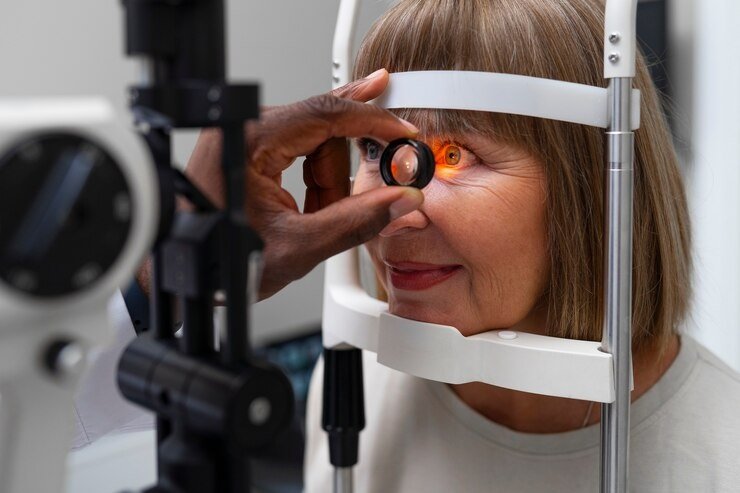How to Improve Your Mental Health
Have you ever felt overwhelmed, anxious, or just not quite like yourself? You’re not alone. In today’s fast-paced world, it’s easy to neglect our mental health and well-being. But what if we told you that there are simple steps you can take to improve your mental health and enjoy life to the fullest? In this comprehensive guide, we’ll explore various strategies for improving your emotional health, from exercise and diet to mindfulness and therapy.
Key Takeaways
- Regular exercise can boost your mood and help you manage stress
- A balanced diet rich in whole foods can improve your mental and physical health
- Mindfulness practices, such as meditation and breathing exercises, can calm your nervous system and relieve stress
- Seeking professional help, such as therapy or counseling, is a sign of strength and can provide valuable support
The Importance of Mental Health in Today’s World
Mental health is just as crucial as physical health, yet it’s often overlooked. In fact, one in five adults in the United States experiences a mental health condition each year. But what exactly is mental health? Simply put, it’s our emotional, psychological, and social well-being. It affects how we think, feel, and act, and it helps determine how we handle stress, relate to others, and make choices.
Good mental health doesn’t mean that you never experience difficult situations or emotions. It means having the tools and resources to cope with stress, bounce back from setbacks, and enjoy life despite its challenges. By prioritizing our mental health, we can improve our overall health and well-being, boost our resilience, and build stronger relationships with others.
Exercise for Mental Health
Get Moving for a Healthier Mind
We all know that exercise is good for our physical health, but did you know that it can also improve your mental health? That’s right – regular exercise or activity can have a major impact on your mood, stress levels, and overall well-being.
| Benefits of Exercise | How It Helps |
|---|---|
| Boosts mood | Releases endorphins, the “feel-good” chemicals in your brain |
| Reduces stress | Helps you clear your mind and relieve tension |
| Improves sleep | Tires you out physically, leading to better sleep quality |
| Increases self-esteem | Gives you a sense of accomplishment and pride |
| Enhances cognitive function | Improves memory, attention, and decision-making skills |
So, how can you incorporate more exercise into your daily routine? Here are some practical tips:
- Choose an activity you enjoy. Whether it’s walking, dancing, or playing a sport, find an exercise that brings you joy and makes you feel good.
- Set realistic goals. Start small and gradually increase the intensity and duration of your workouts. Celebrate your progress along the way!
- Make it a social activity. Exercise with friends, join a fitness class, or participate in a team sport. Connecting with others can make exercise more fun and keep you accountable.
- Reward yourself. Treat yourself to something special after reaching a fitness milestone, like a new workout outfit or a massage.
Remember, any amount of exercise is better than none at all. Even a short walk around the block can help elevate your mood and reduce feelings of stress. So, lace up those sneakers and get moving – your mind will thank you!
Diet for Mental Health
Fuel Your Mind with a Balanced Diet
You’ve probably heard the saying, “you are what you eat.” Well, it turns out that what we eat can have a significant impact on our mental health. A diet rich in whole, nutrient-dense foods can help improve your mood, boost your energy levels, and even reduce symptoms of depression and anxiety.
So, what should you be eating to support your mental health? Here are some key components of a brain-healthy diet:
- Whole grains: Rich in fiber and complex carbohydrates, whole grains provide steady energy and help regulate mood.
- Fruits and vegetables: Packed with vitamins, minerals, and antioxidants, produce helps protect your brain from oxidative stress.
- Lean proteins: Found in foods like fish, poultry, and legumes, protein is essential for neurotransmitter production and brain function.
- Healthy fats: Omega-3 fatty acids, found in fatty fish, nuts, and seeds, are crucial for brain health and may help reduce inflammation.
In addition to focusing on nutrient-dense foods, it’s also important to limit processed and sugary foods, which can contribute to mood swings and energy crashes. Instead, try practicing mindful eating – pay attention to your hunger and fullness cues, savor your food, and avoid distractions while eating.
By fueling your body with the right nutrients and practicing mindful eating habits, you can support your brain health and improve your overall mental well-being. So, the next time you reach for a snack, ask yourself: is this nourishing my mind and body?
Meditation for Mental Health
Find Inner Peace with Meditation
In our busy, always-on world, it can be challenging to find moments of peace and quiet. But what if we told you that just a few minutes of meditation each day could transform your mental health? Meditation is a simple yet powerful practice that involves focusing your attention on the present moment, whether it’s your breath, a mantra, or a physical sensation.
Here are some of the many benefits of meditation for mental health:
- Reduces stress and anxiety: By calming your nervous system and promoting relaxation, meditation can help alleviate symptoms of stress and anxiety.
- Improves focus and concentration: Regular meditation practice can help train your brain to be more present and focused, even in the face of distractions.
- Increases self-awareness: By turning inward and observing your thoughts and emotions, meditation can help you develop a greater sense of self-awareness and emotional intelligence.
- Enhances emotional regulation: Meditation can help you develop the skills to respond to difficult emotions with greater clarity and equanimity.
Ready to give meditation a try? Here are some simple techniques to get you started:
- Mindfulness meditation: Focus your attention on your breath, noticing the sensation of the air moving in and out of your body. When your mind wanders (and it will!), gently redirect your attention back to your breath.
- Loving-kindness meditation: Cultivate feelings of love, compassion, and goodwill towards yourself and others. Silently repeat phrases like “may I be happy, may I be healthy, may I be at peace” while visualizing yourself and others surrounded by warmth and light.
- Body scan meditation: Lie down or sit comfortably and bring your attention to each part of your body, starting with your toes and moving up to the top of your head. Notice any sensations, tension, or discomfort, and imagine breathing into and releasing those areas.
Remember, there’s no “right” way to meditate – the key is to find what works best for you. Whether it’s a few deep breaths before you start your day or a longer seated practice, any amount of meditation can help calm your mind and improve your mental well-being.
Therapy for Mental Health
Seeking Professional Help for Mental Health
While self-care practices like exercise, diet, and meditation can be incredibly helpful for improving mental health, sometimes we need additional support. That’s where therapy comes in. Therapy is a collaborative process between you and a trained mental health professional, where you work together to identify and change patterns of thinking and behavior that may be contributing to your emotional distress.
Here are some of the many benefits of therapy for mental health:
- Provides a safe, non-judgmental space: Therapy offers a confidential and supportive environment to explore your thoughts, feelings, and experiences without fear of judgment or criticism.
- Helps you develop coping skills: A therapist can teach you practical tools and techniques for managing stress, anxiety, and other emotional challenges.
- Offers a fresh perspective: By providing an outside perspective, a therapist can help you identify blind spots and patterns that may be holding you back.
- Facilitates personal growth: Therapy can help you gain insight into yourself, your relationships, and your life goals, leading to greater self-awareness and personal growth.
If you’re considering therapy, here are some tips for finding the right therapist:
- Research different types of therapy: There are many different approaches to therapy, such as cognitive-behavioral therapy (CBT), psychodynamic therapy, and humanistic therapy. Do some research to find an approach that resonates with you.
- Ask for referrals: Talk to your healthcare provider, friends, or family members for recommendations of therapists they trust.
- Consider online therapy: With the rise of telehealth, many therapists now offer online sessions, which can be more convenient and accessible than in-person therapy.
- Trust your instincts: It’s important to find a therapist who you feel comfortable with and who you believe can help you. Don’t be afraid to shop around until you find the right fit.
Remember, seeking help is a sign of strength, not weakness. By prioritizing your mental health and seeking professional support when needed, you’re taking a powerful step towards a happier, healthier life.
Conclusion
We hope this comprehensive guide has shown you that improving your mental health is possible, and that there are many strategies you can use to boost your mood, reduce stress, and enjoy life more fully. Whether it’s through regular exercise, a balanced diet, mindfulness practices, or seeking professional help, remember that taking care of your mental health is just as important as taking care of your physical health.
It’s also important to remember that improving your mental health is a journey, not a destination. There will be ups and downs, good days and bad days, but by consistently prioritizing your well-being and using the tools and strategies outlined in this guide, you can build resilience, cultivate inner peace, and thrive in the face of life’s challenges.
So, take a deep breath, be kind to yourself, and remember that you have the power to unlock better mental health, one day at a time.











